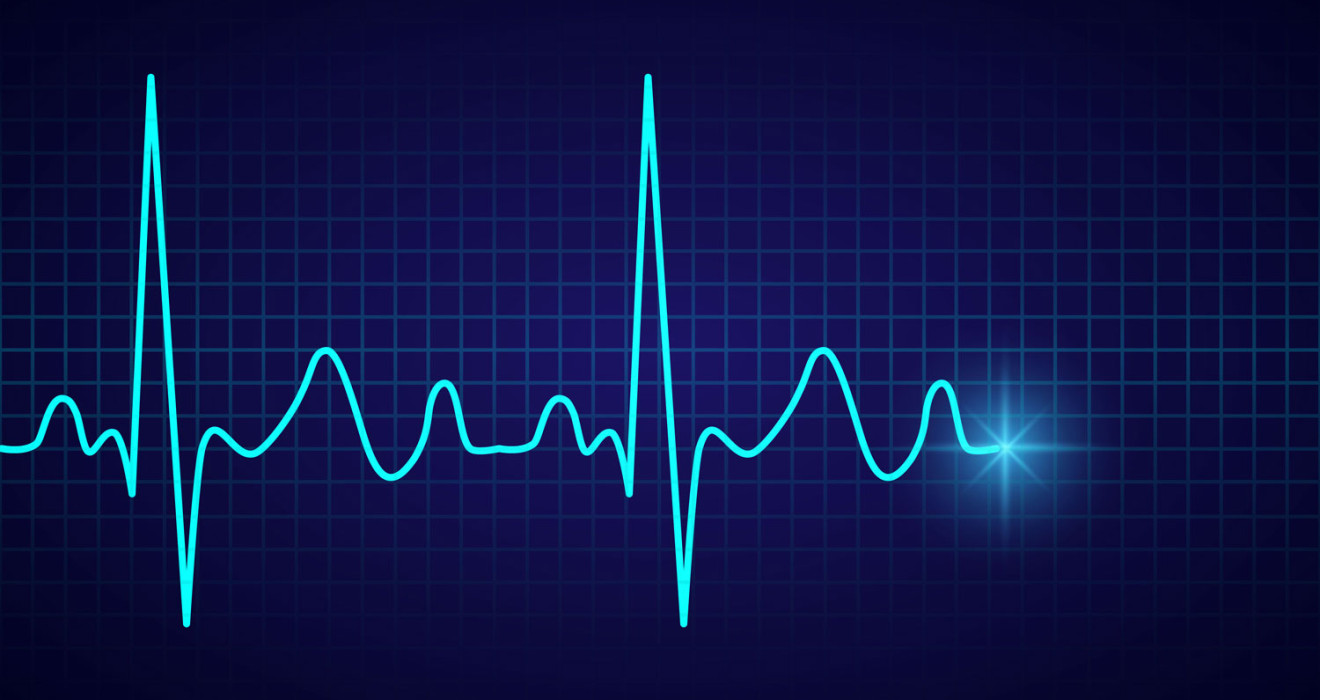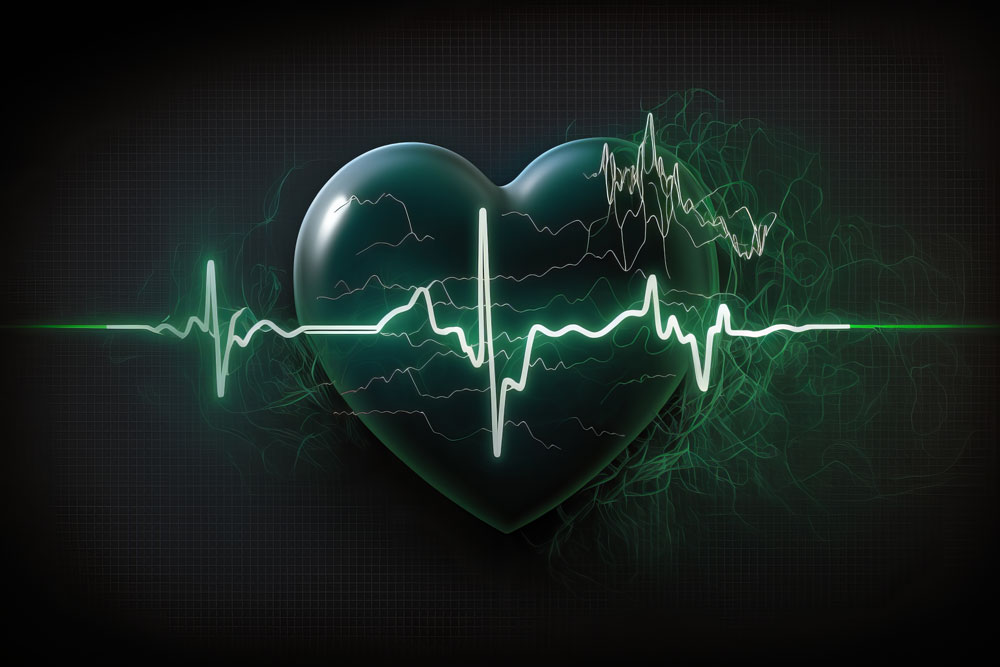
Heart Rhythm Disorder (Arrhythmias)
Heart rhythm disorder is a condition in which the heart deviates from its normal beating rhythm. It is important that the heart beats regularly and at an appropriate rate. This is because the heart carries oxygen and nutrients that the body needs. An arrhythmia can affect this function of the heart and cause serious health problems.
What is Heart Arrhythmia?
Heart rhythm disorder is the change in the normal beating rhythm of the heart.
The normal heartbeat rhythm starts in a region called the sinoatrial node and moves to the ventricles of the heart, contracting the atria. The ventricles are the main pumping part of the heart and contract to pump blood throughout the body. Arrhythmias are a condition that changes this normal beating rhythm and can occur in different ways for different reasons.
What are the Symptoms of Heart Arrhythmia?
The symptoms of arrhythmias are as follows:
- Heart palpitations or irregular heartbeat
- Shortness of breath or difficulty breathing
- Feeling tired or weak
- Chest pain or discomfort
- Feeling dizzy or lightheaded
- Fainting (Syncope)
What Causes Heart Arrhythmia?
Heart rhythm disorders are caused by a number of conditions and diseases that cause the heart to deviate from its normal rhythm and beat irregularly. These conditions and diseases are as follows:
- Heart diseases: Heart diseases such as heart attack, heart failure, heart valve disease and coronary artery disease
- Metabolic imbalances: Metabolic disorders such as diabetes, hyperthyroidism, hypothyroidism and electrolyte imbalances
- Medicines some medicines (especially heart medicines, antidepressants and antipsychotics)
- Alcohol and drugs
What are the Types of Arrhythmias?
The types of arrhythmia are as follows:
- Bradycardia: The heart rate is slower than normal.
- Tachycardia: A heart rate that is faster than normal.
- Supraventricular arrhythmia: Arrhythmias that originate in the upper chambers of the heart.
- Ventricular arrhythmia: Arrhythmias originating in the lower chambers of the heart.
- Atrial fibrillation: Irregular contraction of the upper chambers of the heart.
- Ventricular fibrillation: This is an irregular contraction of the lower chambers of the heart and is a life-threatening condition.
How is Heart Arrhythmia Diagnosed?
Heart arrhythmia can be diagnosed using physical examination, assessment of symptoms, medical history and some tests.
The doctor first checks the heart rhythm by listening to the heartbeat and measuring the pulse. If there are symptoms or risk factors for a heart rhythm disorder, one or more tests may be performed. These tests include an electrocardiogram (ECG), Holter monitor, stress test, echocardiography and electrophysiological examination.
What Causes Heart Arrhythmia?
Arrhythmias can occur in different types and have different consequences, depending on different causes. These are as follows:
- Atrial fibrillation: One or both of the upper chambers of the heart contracts rapidly and irregularly.
- Supraventricular tachycardia One or both of the upper chambers of the heart are contracting rapidly.
- Ventricular fibrillation: The ventricles, the main pumping part of the heart, contract irregularly and rapidly. This can cause a heart attack or sudden death.
- Ventricular tachycardia The ventricles of the heart contract rapidly and irregularly. This can cause a heart attack or sudden death.
What are the Treatment Methods for Heart Arrhythmia?
The treatment methods for heart rhythm disorder are as follows:
- Medication: These can be beta-blockers, blood thinners and other heart medications that regulate the heart rate.
- Electrical cardioversion: This procedure uses electric current to return the heart to its normal rhythm.
- Catheter ablation: This procedure uses a catheter to find and destroy the source of the abnormal rhythm in a specific area of the heart.
- Pacemaker: A pacemaker can be implanted to treat a heart rhythm disorder.
- Surgical treatment: Some heart rhythm disorders may require surgical intervention.
What is Ablation Therapy in Arrhythmia Treatment?
Ablation is a method used in the treatment of heart rhythm disorders. In this method, high-frequency energy is applied to the tissues that are the source of the heart rhythm disorder, destroying or destroying the tissues.
Ablation therapy is used to treat various types of arrhythmias, especially atrial fibrillation, which regulates the heartbeat. This procedure is performed using electrophysiological examination methods.
During ablation treatment, a catheter (a thin tube) is inserted into the heart. At the tip of this catheter is an electrode that generates radiofrequency energy or cryogenic energy. The electrode is directed towards the tissues that are the source of the heart's arrhythmia and high-frequency energy is used to destroy the tissues.
Frequently Asked Questions
-
People with heart rhythm disorders can take a number of steps to protect their heart health by reviewing their lifestyle and other health conditions. These steps include the following:
- Exercise regularly and stay active
- Eating a healthy diet and eating regularly
- Not smoking or quitting
- Limit or completely stop drinking alcohol
- Using exercise, meditation or other techniques to manage stress
- Take your medication regularly and follow your doctor's instructions
- Regular medical check-ups to monitor heart health
-
In particular, fast and irregular rhythm disturbances, such as ventricular fibrillation, can prevent the heart from pumping blood efficiently, leading to sudden cardiac arrest. In addition, rhythm disturbances such as atrial fibrillation can cause blood clots to form. This can increase the risk of stroke. It is therefore important to treat heart arrhythmias if they are present or diagnosed.
-
Rhythm disturbances are usually detected by ECG (electrocardiography) testing. An ECG is a test that records the electrical activity of the heart.
-
Among the causes of heart palpitations,
- Stress
- Anxiety
- Caffeine
- Alcohol consumption
- Smoking
- Excessive exercise
- Hormonal changes
- Medicines
- Thyroid problems
- Electrolyte imbalances
- Heart diseases can take place.
-
Arrhythmias do not directly cause heart attacks. However, some rhythm disorders can increase the risk of heart attack. Therefore, care should be taken.


